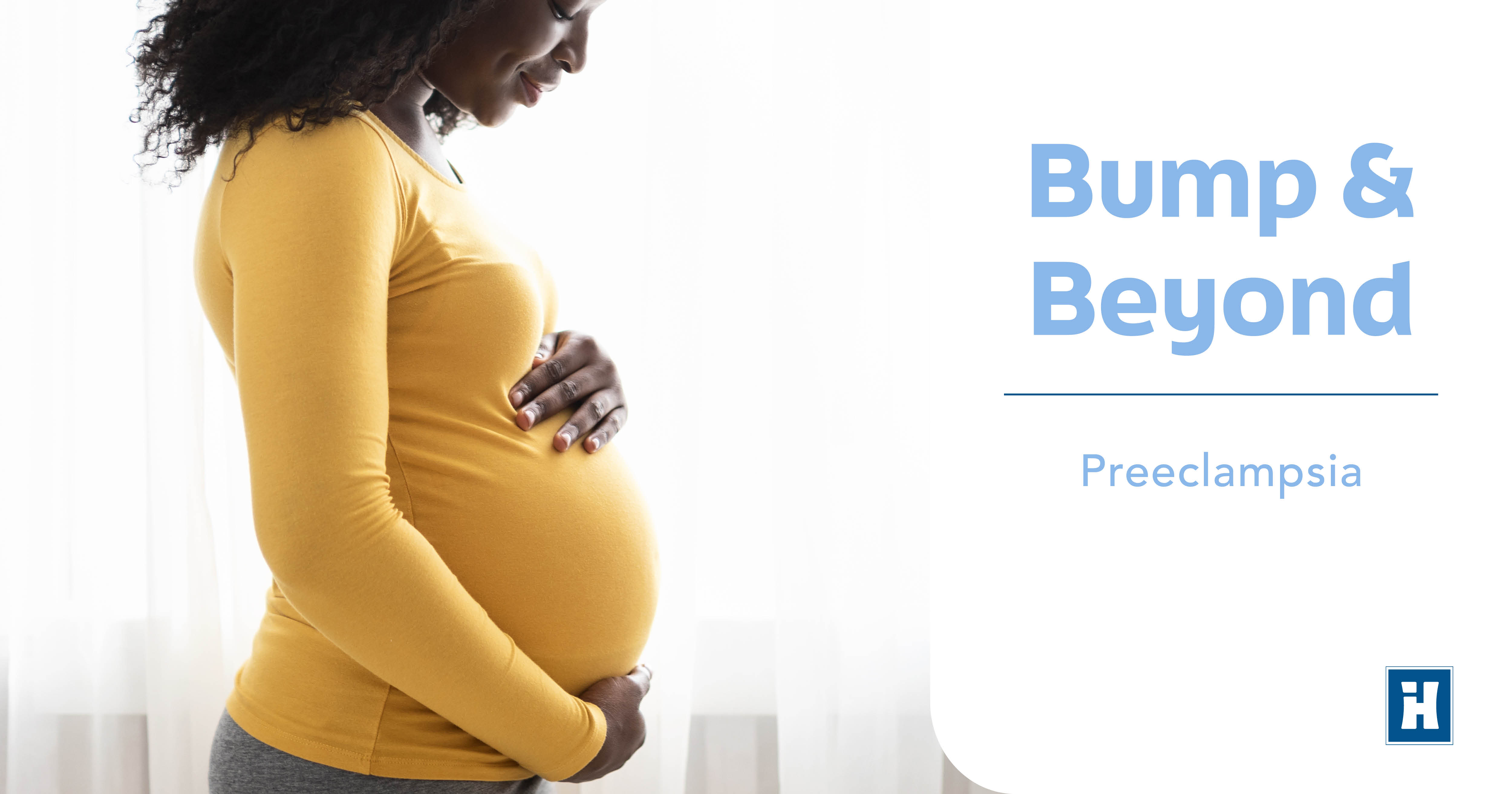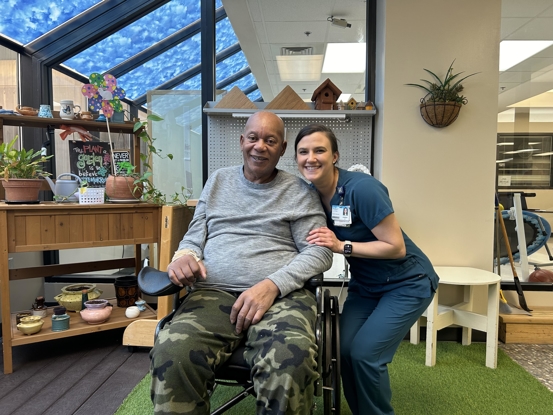Bump & Beyond | Preeclampsia
- Category: Women's Health
- Posted On:
- Written By: Sarah Mallonee

February is American Heart Month, a time to focus on your cardiovascular health. During pregnancy, women are at an increased risk for cardiovascular health problems as a woman's blood volume increases during pregnancy to support the baby's growth. Preeclampsia is a cardiovascular complication that can occur in women during the second half of pregnancy (20 weeks +) or shortly after delivery. In the United States, preeclampsia affects between 5 to 8 percent of pregnancies and in many cases leads to preterm birth.
Women with preeclampsia can experience high blood pressure and high levels of protein in urine indicating kidney damage or damage in other organs. This condition puts a large amount of stress on the heart and other organs and can cause serious complications. Preeclampsia can impair liver and kidney function, decrease blood flow to the placenta, or cause fluid to develop in the lungs.
Maintaining regularly scheduled appointments during your pregnancy is one of the first lines of defense for any complications. Your OB-GYN will monitor your blood pressure and test your urine to isolate any potential complications for you or your baby. Regular check-ups are important as many women with preeclampsia do not demonstrate symptoms. However, some women might experience:
- Headaches that do not improve with rest or medication
- Blurry vision, or other visual disturbances
- Trouble breathing
- Rapid weight gain (2-5 pounds in a week)
- Severe swelling of the face, hands, or feet
- Abdominal pain under the ribs
- Severe nausea or vomiting
If you are experiencing any of these symptoms, immediately address concerns with your OB-GYN.
Treatment for pre-eclampsia is determined by severity and pregnancy stage. Most women diagnosed with preeclampsia have healthy babies with proper management. If you are diagnosed closer to full term (37 weeks pregnant or greater) your doctor might consider early delivery. The decision for early delivery is based on what will be the best thing for your health and the health of the baby. If you are diagnosed early in your pregnancy your OB-GYN will monitor you closely to prolong the pregnancy allowing the baby to continue to develop. This can include additional appointments, blood pressure checks, urine and blood tests.
Preeclampsia is a very serious condition. It is important to pay attention to how you are feeling and communicate any concerns to your doctor! If you are pregnant and experience sudden seizures, sharp pain the abdomen, blurry vision, severe headaches or shortness of breath, please go to your nearest hospital immediately. Infirmary Health has five emergency department locations in Mobile and Baldwin Counties, click here to find one near you.
Want to learn more about pregnancy, delivery and post-partum? Join us on our women only Facebook group, Bump and Beyond! Click here to join the conversation.
Subscribe to our mailing list to receive additional education and information about upcoming events.


